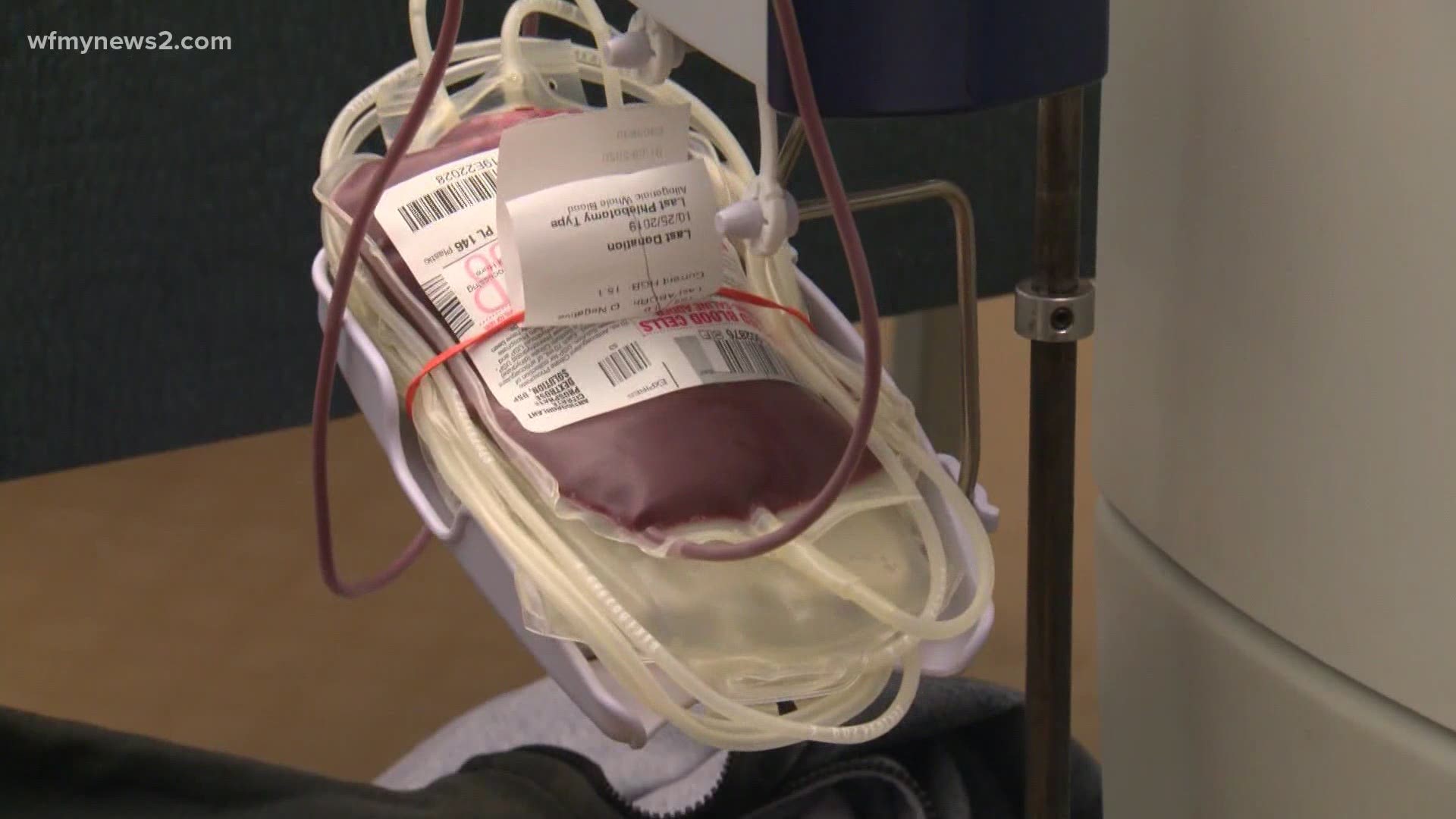GREENSBORO, N.C. — Blood type could hold the key to understanding why COVID-19 affects people so differently.
VERIFY QUESTION
COVID-19 symptoms vary greatly from person to person. As an expert verified last week, overall health, immune system and unknown factors affect the severity of the sickness.
Is one of those unknown factors blood type?
There is an article circulating from the National Institutes of Health about a fascinating new study. The Genome-Wide Association Studies looked at two stretches of DNA containing risk factors for severe COVID-19. This DNA includes genes that determine blood type and affect the immune system.
The findings suggest people with Type O blood appear to have a 50% reduced risk of severe COVID-19. And, people with Type A blood have a 50% greater risk of needing oxygen or a ventilator if they get COVID-19. Researchers leave little mention of blood types B and AB.
VERIFY SOURCE
- Christopher Ohl, M.D. - Wake Forest Baptist Health Infectious Disease Specialist
VERIFY PROCESS
Wake Forest Baptist Health infectious disease specialist, Dr. Christopher Ohl, advised caution when interpreting studies like this one.
In a written statement to WFMY News 2, he explained:
"We see certain genetic associations with many infections and diseases when doing population studies, so it's not surprising that COVID would also have some associations."
He continued, "The findings need to be further investigated to find out why this may be true," he said.
As for what's most important, he concluded, "People need to understand, though, that for any one individual, your blood type is likely not a major factor on if you get COVID and how bad it might be if you do. Other factors such as age, other medical conditions (and) amount of viral exposure are more likely more important."
VERIFY CONCLUSION
While WFMY News 2 can VERIFY the study's claim can be true, it is unclear why. For now, focusing on other risk factors is most crucial.
Do you have a VERIFY inquiry? Submit a post, screen shot or selfie video to Meghann Mollerus via:
Facebook: Meghann Mollerus News
Twitter: @MeghannMollerus

